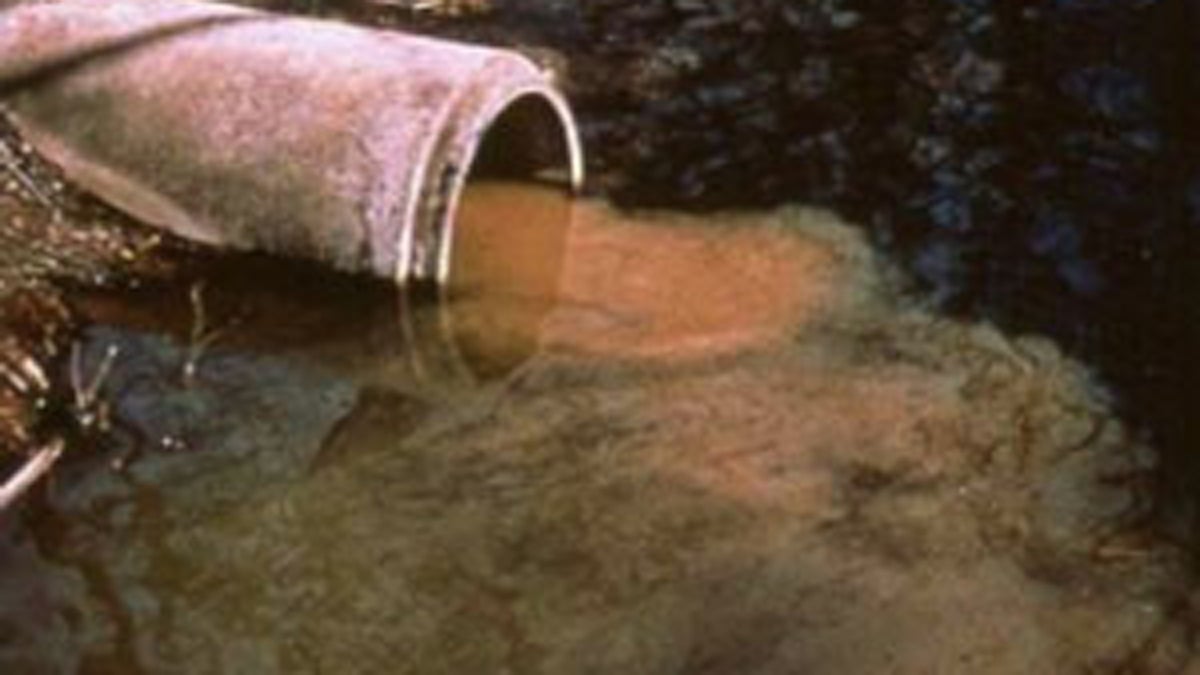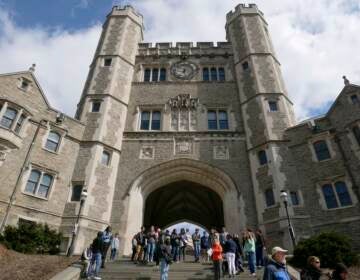Camden among cities ordered to reduce sewage runoff during storms

New Jersey is trying to address its long-running problems with sewage overflowing into the state’s rivers and bays during heavy rain storms.
In the next few weeks, the New Jersey Department of Environmental Protection will issue final permits for 25 municipalities and regional sewage authorities to develop long-term strategies to deal with the problem. The issue has long been recognized by policymakers, but largely neglected, partly due to the huge cost, which could run to tens of billion dollars, according to some projections.
Most of the so-called combined sewer-overflow systems (CSOs) — lines that direct both sewage and storm water to regional treatment facilities — are in the New York-New Jersey Harbor region. Overall, there are 217 CSO outfalls in the state covered by the draft permits, according to the DEP.
When it rains heavily, the CSO systems cannot handle both the sewage going to wastewater treatment plants and storm runoff, both of which go through the same pipelines.
Each year, more than 7 billion gallons of raw sewage are dumped into New Jersey’s waterways. Despite issuing the final permits in the next few weeks, the problem will not be quickly solved. The DEP is giving towns and authorities up to 5 years to develop strategies to reduce the problem, longer to figure out how to end the pollution.
Still, some were enthusiastic that the state is moving to address the problem.
“These permits are going to launch an incredible process to upgrade water infrastructure,’’ said Chris Sturm, senior policy advocate for New Jersey Future, an organization that has been pushing the state to address the issue.
The new initiative not only has the ability to improve water quality and mitigate flooding in urban areas, but also has the potential to revitalize urban areas, Sturm said.
“This new permit framework encourages regional collaboration on planning and development of projects that will provide urban redevelopment opportunities, improve water quality, beautify neighborhoods, and improve the overall quality of life in our urban communities,’’ said DEP Commissioner Bob Martin in a press release.
The agency is basically recommending two approaches to address the problems posed by CSOs. One would involve projects that encourage cities and authorities to build storage tanks — as Camden has done — or lagoons to store storm water for later release, according to Larry Hajna, a spokesman for DEP.
The other would entail green infrastructure projects, such as rain gardens, green roofs, and more urban parks to capture storm water. Financing is available to help design these strategies, according to the DEP.
To some, however, New Jersey is lagging behind other states, which already have developed similar approaches to deal with century-old systems that handle wastewater and storm runoff.
“New Jersey has lagged behind other states for years,’’ said Jeff Tittel, a frequent critic of the Christie administration. It should have happened 20 years ago. As we keep waiting, we still get raw sewage spilled into our waterways.’’
The U.S. Environmental Protection Agency’s Region II office, which covers New Jersey, acknowledged combined sewer overflow systems are a very serious public health and environmental problem in a number of New Jersey communities. “These new permit will help lead the way to improved water quality,’’ said Joan Leary Matthews, director of the EPA’s Region II Clean Water Division.
The permits address combined sewer outfalls in the following areas: Bayonne (30 outfalls); Camden (28); Camden Municipal Utilities Authority (10); East Newark (1); Elizabeth (28); Fort Lee (2); Gloucester City (7); Hackensack (2); Harrison (7); Jersey City (21); Kearny (5); North Bergen Municipal Utilities Authority, encompassing North Bergen and Guttenberg, (10); Newark (17); North Hudson Sewerage Authority, involving Hoboken, Weehawken and Union (8); North Hudson Sewerage Authority, for West New York (2); Paterson (24); Perth Amboy (16); Ridgefield Park (6); Town of Guttenberg (1); and Trenton (1).
_________________________________________
NJ Spotlight, an independent online news service on issues critical to New Jersey, makes its in-depth reporting available to NewsWorks.
WHYY is your source for fact-based, in-depth journalism and information. As a nonprofit organization, we rely on financial support from readers like you. Please give today.




